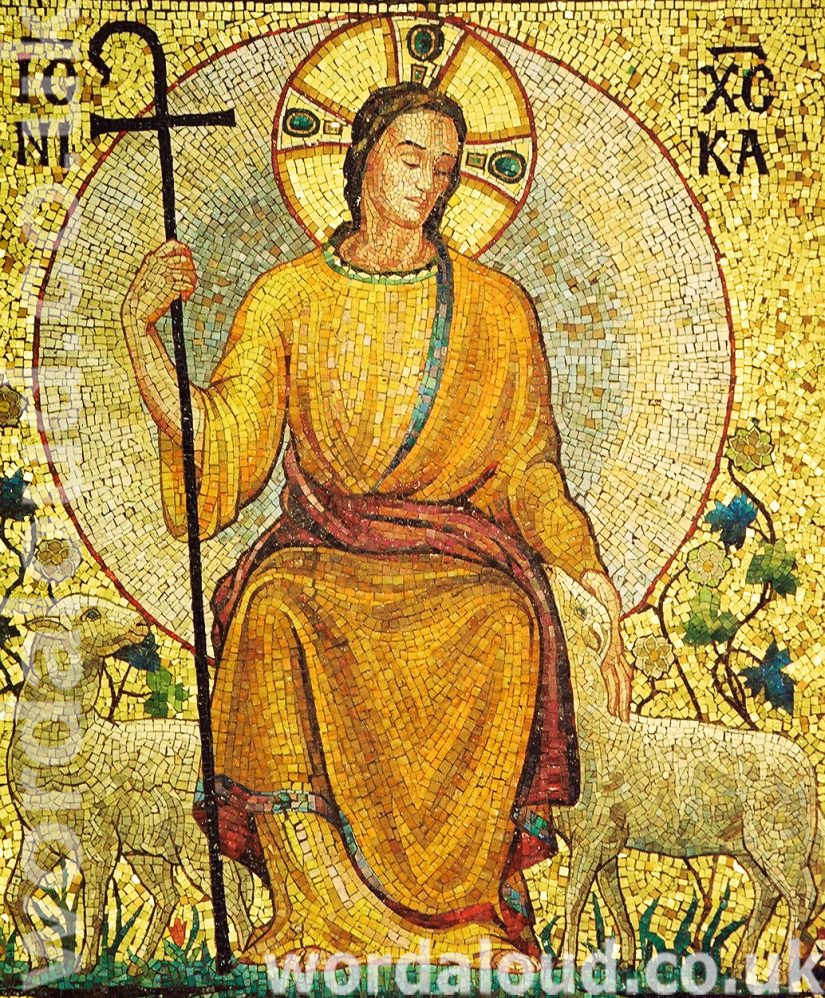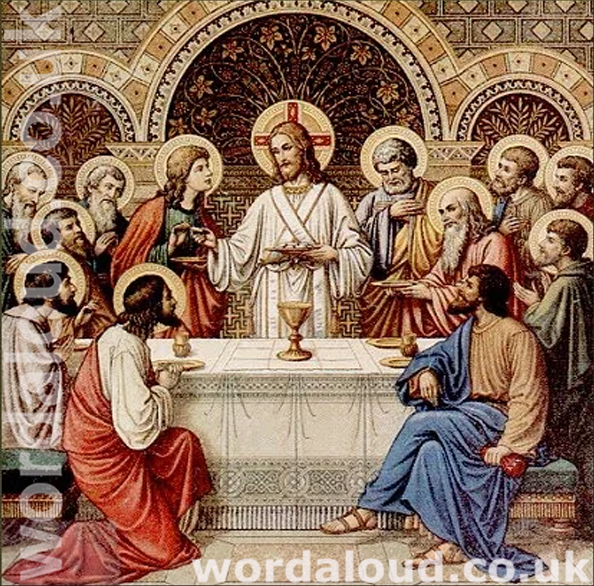Christian Art | King James Audio Bible KJV | Daily Bible Verses Advent
Matthew 21: 23-27 | King James Audio Bible KJV | Daily Bible Verses Advent | Love Revealed By Jesus Christ
23 ¶ And when he was come into the temple, the chief priests and the elders of the people came unto him as he was teaching, and said, By what authority doest thou these things? and who gave thee this authority?
24 And Jesus answered and said unto them, I also will ask you one thing, which if ye tell me, I in like wise will tell you by what authority I do these things.
25 The baptism of John, whence was it? from heaven, or of men? And they reasoned with themselves, saying, If we shall say, From heaven; he will say unto us, Why did ye not then believe him?
26 But if we shall say, Of men; we fear the people; for all hold John as a prophet.
27 And they answered Jesus, and said, We cannot tell. And he said unto them, Neither tell I you by what authority I do these things.
Today’s verses hold a message for those early Christians of the time when the Gospel was being written. Those Christians faced persecution at the hands of the Roman authority. It would have been reassuring for them to hear of how Jesus challenged authority, helping them to find the courage to keep their faith.
Christ has cleansed the Temple, driving out the money changers and the salesmen, and he has healed and taught in the Temple. The chief priests and the elders do not seek to try to understand what is happening. They do not ask what is the meaning of Jesus’ actions; rather their concern in for authority.
The chief priests and the elders are presented once again as false shepherds, who feed themselves and neglect their sheep, only being concerned for their own interests and not for the spiritual wellbeing of their flock. Their authority is threatened by Jesus, and this is their motivation as they ask: ‘By what authority doest thou these things?’
Jesus turns the question around to become a challenge to his accusers. He knows that John the Baptist’s authority came from God – Jesus himself went to be baptized by John. The Jewish authorities have previously shunned John, seeing him too as a threat.
They cannot answer Jesus’ question, again because of their concern for maintaining their position. They cannot say from God, because this will excuse their error in their attitude to John. They cannot say ‘of men’ because this would turn the people against them.
The chief priests and the elders are trapped in a false position they have set up for themselves, and which Jesus has now exposed. They cannot respond with honesty to Jesus. Their worldly concerns preclude a way to the truth.
See also: Mark 11: 27-33 – Week 8 Ordinary Time, Saturday.
Almighty God, give your people grace to enter on the way of salvation. As they hearken to the voice of John, the Lord’s herald, bring them safely to Jesus, whom John foretold.
![]()

King James Audio Bible | Endnotes
We may be always inspired by the teachings of Jesus of Nazareth, as here in Jesus’ interactions in the Temple. This moment of the Gospel of Matthew depicts Jesus teaching in the temple and facing opposition from the religious leaders of his time.
Jesus was known for his powerful sermons and also the use of parables to convey important messages to his followers. Jesus taught the importance of faith and obedience to God, and emphasized the need for a life of love and service to others. We may recall in these verses of the Bible the Sermon on the Mount, where Jesus taught a new path of salvation – far and away removed from religious orthodoxy.
In this instance in the Temple, religious leaders of the Temple ask Jesus for proof of his authority to teach. Jesus responds in a sense with a parable – from the Greek parabole, an analogy or comparison, to throw beside – asking them about the baptism of John the Baptist. This parable was a powerful reminder that faith and obedience to God must be at the forefront of our lives, and that we must be willing to recognize and follow the guidance of those who have been called by God to lead us.
As Christians, we reflect on the teachings of Jesus and strive to embody Jesus’ message in our daily lives. We find comfort and guidance in the words Jesus spoke, and in the examples Jesus set through his life and ministry. Just as Jesus faced opposition in the Temple, we too may face challenges and obstacles as we seek to live out our faith. Just as Jesus persevered, even unto his final hours in the Garden of Gethsemane, so too we remain steadfast in our commitment to serving God and following in his footsteps.








